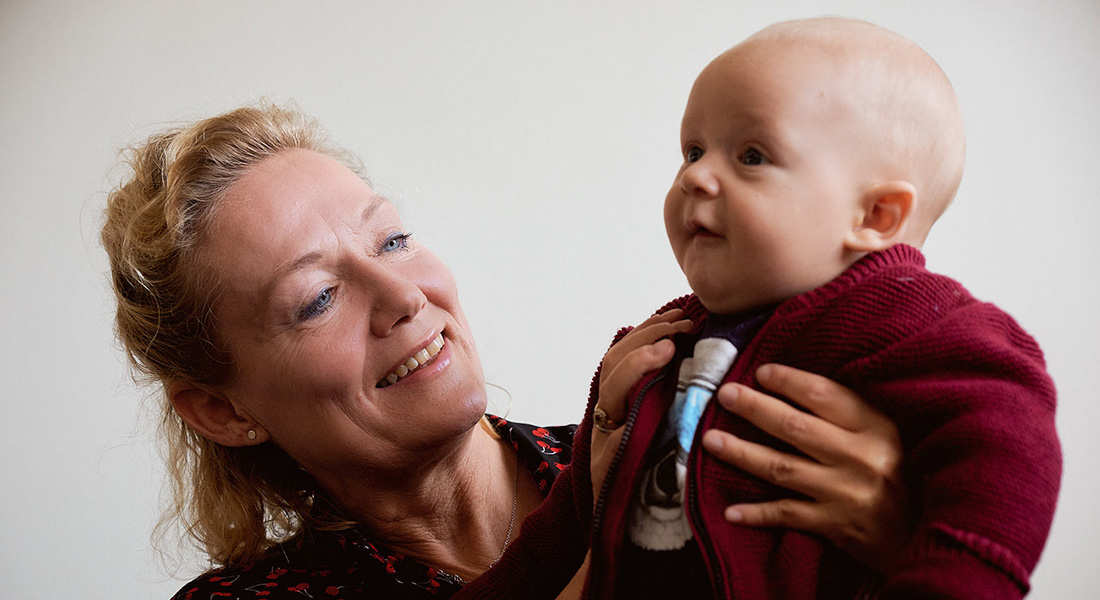Award for Valuable Work on the Mental Health of Infants, Toddlers and Their Parents
Associate Professor Mette Skovgaard Væver, University of Copenhagen, receives this year’s ‘A Good Start in Life’ Award for her effort to improve the mental health of parents and young children. Among other things, she is responsible for the dissemination of a valuable and simple screening method for early detection of social difficulties in young children.

A lot of children risk growing up in vulnerable care environments that are so disadvantaged that the child’s needs are not met. This can e.g. be a result of the parents’ mental conditions, poverty, somatic disease, severe stress or substance or alcohol abuse.
Figures from the Danish Psychiatric Foundation show that in Denmark more than 300,000 children grow up with a parent suffering from a mental condition. And figures from Danske Kommuner show that more than 120,000 children grow up in homes affected by alcohol abuse. The large number of vulnerable families means that thousands of Danish children grow up with a risk of developing mental problems, and the risk is even higher if the child is suffering from innate conditions. And mental problems in early childhood can easily develop into difficulties in school, in one’s love life, at work and as a parent later in life.
According to Associate Professor Mette Skovgaard Væver, Head of the Center for Early Intervention and Family Studies (CIF) at the Department of Psychology, University of Copenhagen, promoting mental health in young children and their parents, including early detection of mental risk development in children, constitutes a vital social effort:
‘When we are born, we are unable to take care of ourselves; we need someone to take care of us physically, but also to help us regulate our feelings and develop mentally. Already in early childhood we create a sort of template for interacting with others and the world. If we detect flaws in this template in early childhood, we are able to correct them and change a potentially negative development’, she explains.
Method for Early Detection of Risk Development in Young Children
And detecting such risk of mental distress is vital. Therefore, Mette Skovgaard Væver and CIF have helped disseminate the detection tool Alarm Distress Baby Scale (ADBB). The method, which is based on research into babies’ social and emotional development, is a standardised tool that can help professionals systematically screen for early signs of social difficulties. For example, the method can help nurses follow and monitor the young child’s physical and mental development. Already at age two months, the child’s social contact and development is assessed, enabling professionals to support families in need of help.
‘It is an extremely valuable and simple screening method that is being used by almost all the country’s municipalities now. We want to help ensure that they will continue to make a systematic effort to help get vulnerable families and their young children off to a good start’, says Cecilia Virgin, President of the ‘A Good Start in Life’ Foundation.
Long-Term Ambition
And precisely the long-term, systematic effort to promote the mental health of pregnant women, parents and their youngest children is one that Mette Skovgaard Væver strives to improve:
‘I am very happy to receive this award, because we see a great demand for the applicable knowledge we create and the practice-oriented tools we develop. Our knowledge must be translated into practice in society, among parents and professionals – of benefit to the children. And preferably, we can create knowledge together’, says Metter Skovgaard Væver, who hopes to turn the Center for Early Intervention and Family Studies into a centre of excellence, i.e. a national competency centre providing evidence-based knowledge and best practices within the area.
The centre focusses broadly on the mental health of 0-6-year-olds, involving anything from pregnancy to preschool age, becoming a family, being a parent, playing and learning, early detection of difficulties and preventive intervention. Read more about the Center for Early Intervention and Family Studies at https://psy.ku.dk/cif/.
Topics
Contact
Mette Skovgaard Væver
Associate Professor
E-mail
About the Foundation
The ‘A Good Start in Life’ Foundation is a non-profit foundation that hands out one award each year. This year, Mette Skovgaard Væver and Chief Physician and Psychiatrist Anne Ulbæk, Capital Region of Denmark, Glostrup, share the DKK-100,000 award.
The foundation supports activities that seek to strengthen the families’ own resources in connection with pregnancy, birth and the first years of the child’s life. The award is presented by General Director of the Danish Health Authority Søren Brostrøm.
